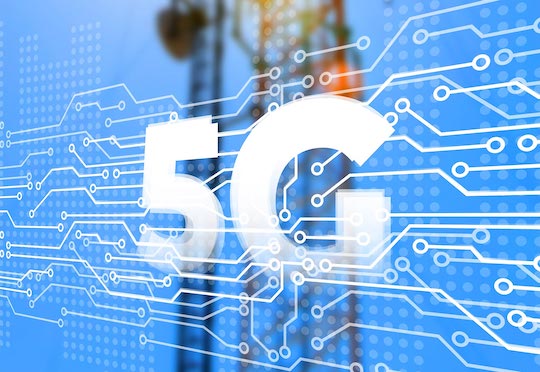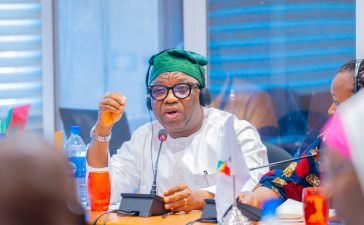Sub-Saharan Africa, including Nigeria, is set to see significant economic gains from the ongoing rollout of 5G technology, with an expected $10 billion boost to the region’s economy.
This figure comes from the latest analysis by the Global System for Mobile Communication Association (GSMA), which forecasts that 5G will contribute six percent of the mobile sector’s total economic impact in the region.
The technology’s benefits, which include lower latency, higher bandwidth, and greater capacity, promise to transform industries, creating new opportunities for businesses and improving quality of life for individuals across the continent.
Since the launch of 5G services in South Africa in July 2020, the country has made substantial progress, expanding coverage to approximately 20 percent of its population.
Nigeria, on the other hand, became one of the first countries in West Africa to embrace 5G technology, with services first launched in Lagos in 2022.
Nigeria’s telecom industry is now benefiting from the efforts of three major telecom operators—MTN Nigeria, Mafab Communications, and Airtel Nigeria—all of which are offering 5G-enabled services to their customers.
The Nigerian Communications Commission (NCC), through the Federal Government, raised over $847.8 million from the sale of the 5G spectrum, further solidifying the country’s commitment to advancing its telecom infrastructure.
With this move, Nigeria is positioning itself as a regional leader in digital transformation, opening the door to numerous opportunities across sectors like education, healthcare, finance, and entertainment.
In addition to improving the speed and reliability of mobile internet services, the economic impact of 5G is expected to be transformative in several key areas.
For example, the technology is anticipated to create a more robust digital economy, driving growth in sectors such as e-commerce, cloud computing, artificial intelligence (AI), and the Internet of Things (IoT).
It will also enable advancements in critical areas such as telemedicine, online learning, and digital entertainment, allowing for more efficient delivery of services and enhancing accessibility for citizens across Nigeria.
The adoption of 5G technology will also have a ripple effect on job creation, particularly in tech-related fields, as companies seek to develop new applications and solutions that leverage the high-speed capabilities of 5G.
Furthermore, businesses will benefit from enhanced operational efficiencies, increased data usage, and new market opportunities, which will help drive innovation and improve Nigeria’s position in the global digital economy.
As the adoption of 5G grows, Nigeria’s tech and telecom sectors are likely to see significant investment inflows, further boosting economic development.
The faster, more reliable internet speeds that 5G offers will help Nigerian businesses better compete in the global marketplace by enhancing their digital capabilities and opening up access to a wider range of international markets.
However, experts note that while the potential for economic growth is high, the successful implementation of 5G across Nigeria will depend on addressing several key challenges, including ensuring widespread infrastructure development, regulatory support, and digital literacy programs to ensure all citizens can fully benefit from the new technology.
The GSMA’s report highlights that the overall economic impact of 5G technology across Sub-Saharan Africa will be felt in the coming years as both businesses and individuals begin to realize the full benefits of faster, more efficient telecom services.
For Nigeria, 5G represents a major milestone in its ongoing efforts to diversify its economy, reduce reliance on oil exports, and position itself as a leader in Africa’s digital revolution.







